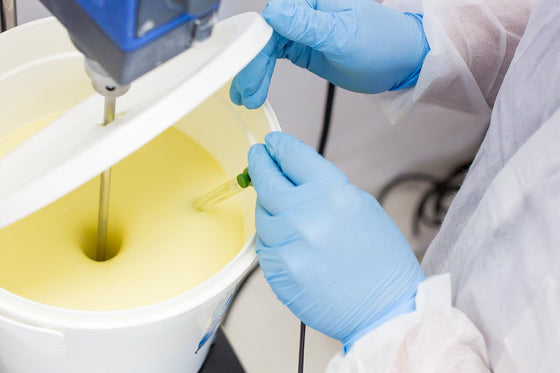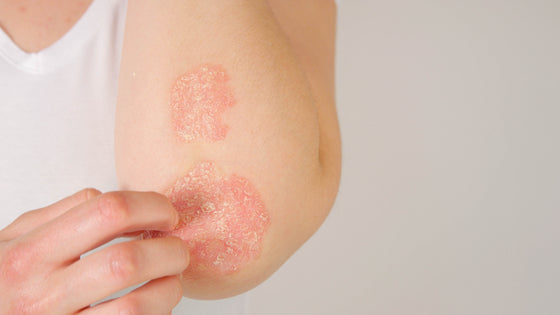
Are you concerned about the preservatives in your skin care or personal care products? We have a range of options to suit you.
What are "preservative" chemicals, and why they are used? In general, preservatives are added to cosmetic products to prevent microbial growth. Overgrowth of bacteria in cosmetic products leads to spoilage and could potentially cause significant harm, so the preservatives are included with good reason. Commercial personal care products must contain enough preservative to be stable for at least 2 years in their intended use. Products like creams in pots contain high preservative levels to cope with repeated microbial contamination by fingers. Products that are intended to be used in warm or humid environments will contain particularly high levels (e.g. sunscreens stored in a beach bag in the sun, or shampoos and conditioners stored in the shower). Regardless of a product's expense or marketing claims to hypoallergenicity, it must contain preservatives. Even "natural" or "organic" skin-care products will still contain some kind of preservative, or they could not claim the shelf-life that they usually do. Sometimes, preservatives are hidden in ingredient lists, and sometimes they are listed as "fragrance". Other products simply contain ineffective preservatives (e.g. grapefruit seed extract), or conflate antioxidants with antimicrobials (e.g. rosemary oil or Vitamin E).
Your skin is naturally populated by a diversity of microorganisms that help to keep it healthy. Collectively, these are known as your skin's microbial flora, or biome. Scientists are only just beginning to understand the connections between disruptions to skin flora and disease states, but it is reasonable to assume that such disruptions are likely to be detrimental to skin health. The preservative levels found in skincare products have been found to inhibit the growth of normal skin bacteria. Mixtures of preservatives, as are frequently used in personal care products, are likely to have an even greater inhibitory effect on your skin microbiology.
When all is considered, you may feel that you would rather not put preservative chemicals onto your skin—or onto the skin of your baby. Our industrially-qualified formulators at Border Compounding Pharmacy are able to create a preservative-free skin- or personal care product to suit you. You can choose from our large range of customization options to have your product made just the way you would like it. Our preservative-free products are prepared fresh, just for you, and are supplied with short expiry dates—or they just wouldn't be safe. Any of our preservative-free products that contain water come with a one-month expiry.
Most creams and lotions (and shampoos and the like) contain water as their major ingredient. Since microorganisms require water for growth, these products are ideal places for spoilage. Water can also degrade the other ingredients in the product through hydrolysis. One way to create a longer-lasting preservative-free product is to exclude water from its formulation. Water-free products (e.g. moisturising oils or some cleansers) are naturally more stable and resistant to both degradation and bacterial contamination. However, not all products can be made water-free, and water-free products may not be suitable for all uses. Our water-free products come with a six-month expiry date.
Our minimally-preserved products can be customised to suit you, and come with a three month expiry date.
All of our skincare products are supplied in easy-to-use airless pump dispensers that keep the product fresh and free of contamination from fingers. This is especially important for preservative-free and minimally-preserved products. The stability of these products is also improved by keeping them cool but not cold, as warm and humid conditions (such as that found in many bathroom areas) can promote the growth of bacteria.
If you are looking for a personalised, minimally preserved moisturiser, consider our very popular BCP Custom Moisturiser : an easy 3-step approach to personalised skincare.
You can order online today, or If you would like help selecting which vitamins and oils you need in your skincare you can book a FREE UV skin analysis (Albury only) with our skin consultant Melanie. or contact us to discuss your skin type and skin concerns.
Border Compounding Pharmacy products are unique, because they are formulated by pharmacists.
Comments will be approved before showing up.

Medicinal cannabis products are legal, high quality medicines that can be prescribed for people by their doctor. Medicinal cannabis is derived from cannabis plants and can be used to treat the symptoms of certain medical conditions, and the side effects of some treatments.
